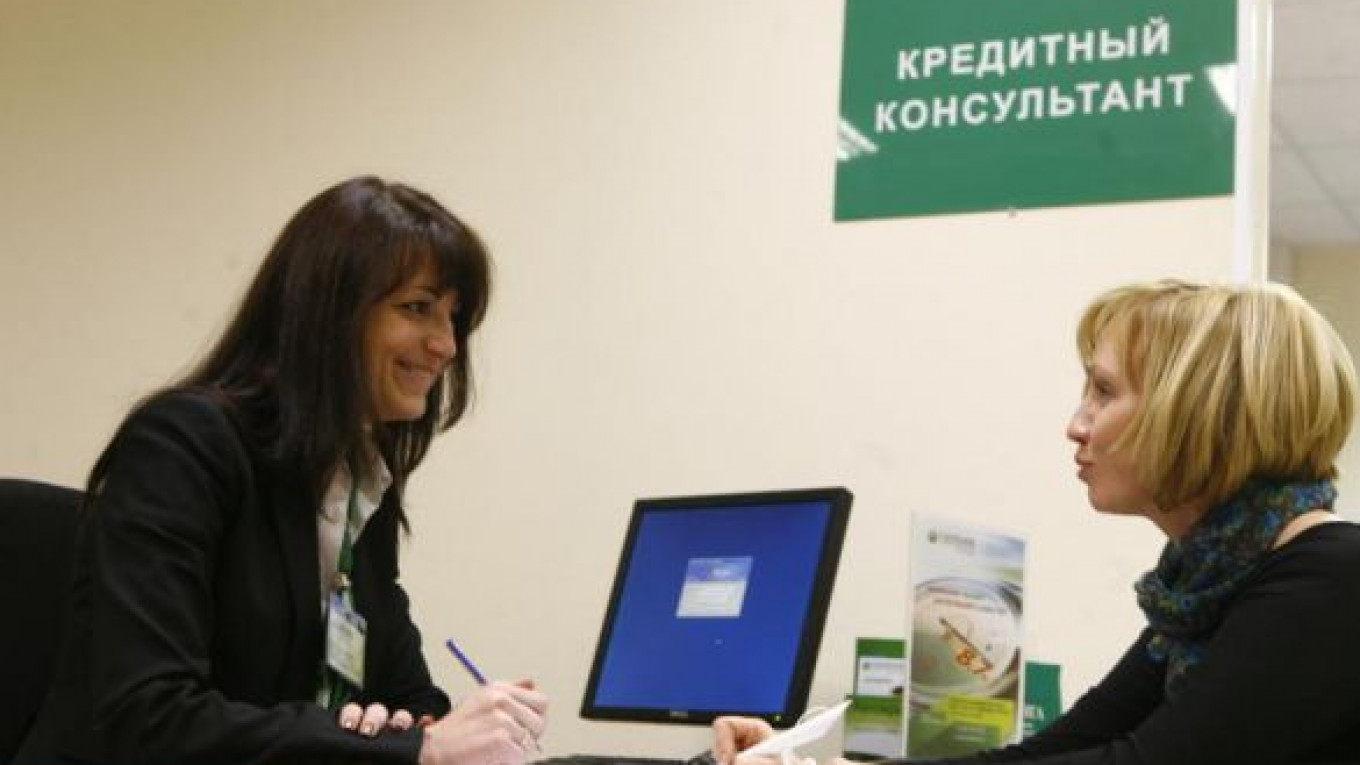The Finance Ministry and Central Bank have submitted a set of amendments to the consumer credit law that will be discussed by Duma deputies, which seek to fix the extent of the regulator's powers in controlling consumer loan interest rates, Kommersant reported Tuesday.
This is the second attempt to bring to fruition the idea of interest rate regulation — although this one offers more flexibility to lenders. The first version of such amendments which disappeared from the agenda a week before they were to be discussed by deputies last month, allowed the Central Bank to determine the maximum allowed cost of credit within a 30 percent range of the average market price.
The current version of the amendments narrows the regulator's freedom in managing the interest rates, by limiting it to a set level which is related to the market.
Each quarter, the Central Bank will have to calculate and publish the average market cost of credit, including interest rates and account fees. Banks will then have to set their credit rates at no more than the published rate.
However, there will be exceptions which allow banks the right to set the rates outside the prescribed 30 percent level.
The program of restricting interest rates as it is presented in the amendments is a compromise between the regulator, the market and the deputies, bankers said.
"In this version the amendments don't allow the Central Bank to voluntarily change allowed surcharges, which would put banks in a difficult situation every quarter," an executive from a consumer credit bank said.
But for consumers, it's bad news, bank experts said. This approach will encourage banks to raise interest rates to the maximum allowed level to maximize profit.
A Message from The Moscow Times:
Dear readers,
We are facing unprecedented challenges. Russia's Prosecutor General's Office has designated The Moscow Times as an "undesirable" organization, criminalizing our work and putting our staff at risk of prosecution. This follows our earlier unjust labeling as a "foreign agent."
These actions are direct attempts to silence independent journalism in Russia. The authorities claim our work "discredits the decisions of the Russian leadership." We see things differently: we strive to provide accurate, unbiased reporting on Russia.
We, the journalists of The Moscow Times, refuse to be silenced. But to continue our work, we need your help.
Your support, no matter how small, makes a world of difference. If you can, please support us monthly starting from just $2. It's quick to set up, and every contribution makes a significant impact.
By supporting The Moscow Times, you're defending open, independent journalism in the face of repression. Thank you for standing with us.
Remind me later.






